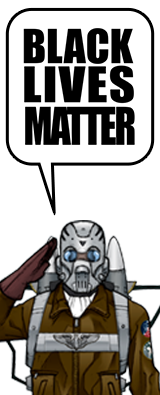In Memory of Harvey Pekar
Earlier this week, Harvey Pekar died. He was seventy years old. For those who may not recognize the name, Harvey Pekar was best known for writing American Splendor, an autobiographical “underground” comic that was published irregularly for over thirty-two years. He also wrote several other graphic works, such as The Beats and The Quitter. He co-wrote Our Cancer Year, a chronicle of his fight with lymphoma, with is wife, Joyce Brabner. He also occasionally wrote essays and did freelance jazz and book criticism.
In most of Pekar’s autobiographical work, he painted himself as something of a curmudgeon, impotently railing against the myriad frustrations of modern life. His stories were often anecdotal, and he would sometimes break the fourth wall and speak directly to the reader. He worked with many artists over the years, including his friend R. Crumb.
To be honest, I never got into Pekar’s work. Something about it simply didn’t connect with me. But that does not diminish my respect for him. He was unflinchingly honest, even about (or perhaps especially about) himself. His stories were the purest type of autobiography, without a hint of self-aggrandizing embellishment. He wrote his comics for over thirty years, despite the fact that he received very little money or recognition for his work for much of that time. They were truly an artistic expression, self-aware, but not self-conscious. I really admire that kind of honesty.
Pekar’s work also helped to broaden the definition of comics beyond the standard superhero genre. He certainly wasn’t the only one straining against those boundaries, but he ultimately became one of the most revered. His persistence brought him out of obscurity and into the mainstream, if only peripherally so, and helped to give comics a little more credibility as a medium.
Yes, The Specialists is essentially a superhero comic. What can we say, we love superheroes. But I certainly don’t think that the medium of comics should be defined by the genre of superheroes. There are lots of examples of romance, drama, science fiction, historical, fantasy, humor, and horror comics, and just about every other genre you can think of. But relatively few of them have achieved the kind of mainstream popularity that superhero comics have. For comics to survive long-term, it can’t be relegated to the superhero genre, so the work of alternative comics creators is important. Harvey Pekar is among the most important of these creators. He left behind a body of work that anyone could be proud of.
Shawn


That was really poignant. Harvey Pekar is one of those people who changed their medium profoundly, but subtly. Like John Cage in music: you don’t have to have followed his work with diligently to see the effect it had on the entire field.